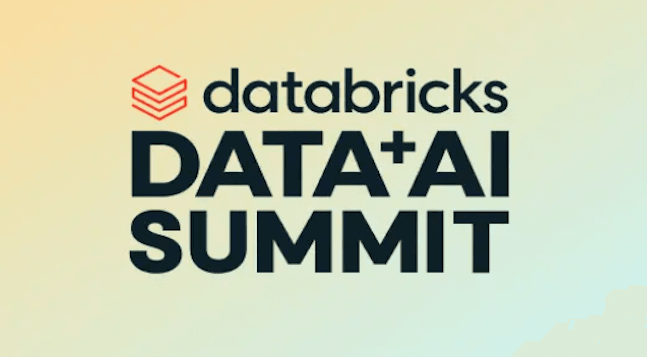Databricks Data + AI Summit 2025: Key Takeaways

By Mendelsohn Neil Chan
Published on June 17, 2025

This year at the Databricks Data + AI Summit 2025, the energy was electric. As part of Alation’s team on the show floor, I had the chance to engage with hundreds of data leaders—from curious prospects to seasoned practitioners. Whether demoing at our booth, connecting with partners, or collaborating with American Airlines to prepare their breakout session, one thing was clear: the AI era is officially here—but only for those ready to simplify data complexity.
Alation proudly sponsored the event and stood alongside our customers, like American Airlines, to show how trusted metadata, robust governance, and a unified data foundation are fueling enterprise-scale AI. Here's what stood out.
Keynote recap: Databricks tackles complexity, cost, and lock-in
Databricks CEO Ali Ghodsi opened with a bold vision: AI success depends on simplification. His keynote unveiled tools designed to reduce cost, eliminate lock-in, and unify fragmented stacks:
Agent Bricks: A workspace for building and evaluating AI agents using enterprise and synthetic data—with LLM-powered “judges” to mitigate unintended outcomes.
Lakebase: A Postgres-compatible, AI-optimized operational database built from their Neon acquisition—ideal for scalable OLTP + AI workloads.
Lakeflow Designer: A no-code, natural-language interface that lets anyone build and deploy production data pipelines—no SQL required.
MCP on Databricks: Develop agents connected to tools via the Model Context Protocol (MCP), exposing data from Unity Catalog, Genie space, or Vector Search indexes. Agents can run within Databricks or call external MCP servers, enabling secure, seamless integration across platforms.
Databricks One: A new experience designed specifically for business users. It provides a single, intuitive entry point to interact with data and AI - without needing to understand programming, clusters, queries, or notebooks
Guest speakers like JPMorgan Chase’s Jamie Dimon hammered home the same message: “AI isn’t the hard part—data is.” It was a powerful reminder that governance, trust, and accessibility remain the gatekeepers of innovation.
How American Airlines drives trusted insights with Alation and Databricks
Anuradha Maradapu, Manager of Data Governance at American Airlines, echoed these key themes. Maradapu is helping lead a digital transformation at one of the world’s largest airlines by embedding data governance directly into the company’s broader data strategy.
Speaking at a session titled Better Together: Enterprise Catalog with Databricks & Alation, Maradapu detailed how her team is using the integration between Alation and Databricks Unity Catalog to overcome complexity, eliminate data silos, and empower business users with trustworthy, governed data.
With over 130,000 employees and vast amounts of data across customer, operations, revenue management, cargo, and more, American Airlines faced challenges familiar to many large enterprises: inconsistent definitions, redundant data, tribal knowledge, and slow access to trustworthy data. “Airline data is very complex,” said Maradapu. “And accessing the right data quickly was a challenge.”
Their solution? A robust data governance program anchored by Alation’s data catalog and powered by seamless integration with Databricks.
Aligning governance to data strategy
Maradapu’s team operates within American’s data engineering, analytics, and automation organization in IT. The team’s mission is to embed core governance disciplines across business processes, cultivating a data-fueled culture. The governance program’s vision is centered on three pillars:
Increase data availability – By documenting data and improving access through process efficiencies.
Drive data trust – By empowering data domain experts and improving consistency in definitions and usage.
Reduce time and cost – Through standardized policies and automation that reduce manual effort and rework.
This foundational approach—rooted in clear intent and cross-functional collaboration—has helped American Airlines shift governance from a compliance function into a value-driver.
Tackling the data gap: from tribal knowledge to transparent stewardship
Before implementing Alation, American Airline’s data users often faced long lead times in finding usable data—if they could find it at all. Even when data was located, it lacked business context or consistent definitions, leading to costly inconsistencies in reporting.
The root issue, as Maradapu explained, was the data gap: a disconnect between users and the information they needed. “Speed to access created redundant sources,” she said. “People relied on tribal knowledge, but there was no standardized linkage between technical assets and business terms.”
Alation’s data catalog, integrated with Unity Catalog, is helping bridge that gap. The result: a single source of truth enriched with both technical and business metadata, visible lineage, and automated discovery—giving data stewards and users shared visibility and accountability.
Creating a minimum viable governance model with customer data
Rather than rolling out governance organization-wide from the start, American Airlines began with a focused MVP: customer data. Partnering closely with business stakeholders, Maradapu’s team cataloged critical customer data elements in Alation and curated the metadata using stewardship processes.
This pilot helped build early trust and prove the model’s value. “Our customer team was our greatest partner,” said Maradapu. “Together we created a repeatable process that removed confusion and clarified ownership.”
Through these efforts, governance shifted from an IT-led effort to a collaborative, domain-driven initiative. Stewards now curate, standardize, and maintain consistent definitions. Business teams run “data therapy sessions” where data conversations help drive cross-functional understanding and data literacy.
Automating metadata, lineage, and policy enforcement
The technical integration between Databricks Unity Catalog and Alation was a game-changer.
By ingesting data into a centralized lakehouse and capturing metadata from Unity Catalog, American Airlines achieved:
End-to-end lineage with minimal manual intervention
Automated metadata extraction at scale
Clear visibility into data flows for root-cause analysis
Simplified policy enforcement by tagging assets with governance requirements
This technical foundation allowed stewards to spend less time hunting for data and more time deriving insights, defining business context, and guiding change management.
Additionally, features like Alation’s natural language search and business glossary empowered users to quickly find, understand, and trust data. Usage analytics helped monitor catalog adoption, while unused assets could be reviewed and retired to optimize costs.
Key takeaways: Making data governance a team sport
Maradapu closed her session with three core learnings from the team’s data governance journey:
Bridge the data-business gap: Aligning technical metadata with business context fosters trust, clarity, and collaboration.
Empower domain experts: Give data stewards the tools, automation, and space to focus on curation and insights—not busywork.
Make governance a team sport: Governance isn’t just IT’s responsibility. Engineers, analysts, and business users must work together—supported by the right technology—to make data usable and valuable at scale.
By embedding governance into everyday workflows and investing in scalable infrastructure, American Airlines has built more than a catalog—it has built a culture of trust, stewardship, and smarter decisions.
3 key themes from the Alation booth
Data governance as the path to innovation was a recurring theme throughout the conference. The conversations at our booth consistently circled three key themes:
Data products power trusted, governed AI
AI is only as effective as the data it consumes. Alation ensures models are trained on high-quality, governed, and context-rich data, reducing bias, hallucinations, and risk.
Balance control & access by governing the Databricks Lakehouse
As enterprises move to the Lakehouse model, governance must scale with them. Alation integrates seamlessly with Unity Catalog to deliver active stewardship, lineage, and policy enforcement—ensuring compliance without slowing innovation.
Discovery and self-service fuel business adoption
Business teams need fast answers. With Alation, they get intuitive discovery, usage analytics, and shared definitions—transforming Databricks into a self-service data platform for the enterprise.
The road ahead: Alation’s agentic platform for AI-driven success
As we return from Databricks Summit, the takeaway is unmistakable: the future belongs to those who can operationalize trust at scale. AI is not plug-and-play—it’s powered by the quality, transparency, and discoverability of your data.
Alation’s Agentic Data Intelligence Platform is built for this future.
Agentic data management. Automate data quality, lineage, and documentation with AI—freeing teams to focus on insights.
Built for everyone: From stewards to analysts to LLMs, our intuitive experience empowers people and systems to use data confidently.
Proven and trusted: Trusted by 40% of the Fortune 100 to meet the highest enterprise standards.
Whether you're building LLM-powered agents or scaling analytics, Alation makes sure your data is ready—for whatever comes next.
Want to see it in action? Request a demo.
- How American Airlines drives trusted insights with Alation and Databricks
- Aligning governance to data strategy
- Tackling the data gap: from tribal knowledge to transparent stewardship
- Creating a minimum viable governance model with customer data
- Automating metadata, lineage, and policy enforcement
- Key takeaways: Making data governance a team sport
- 3 key themes from the Alation booth
- The road ahead: Alation’s agentic platform for AI-driven success
Contents
Tagged with
Loading...